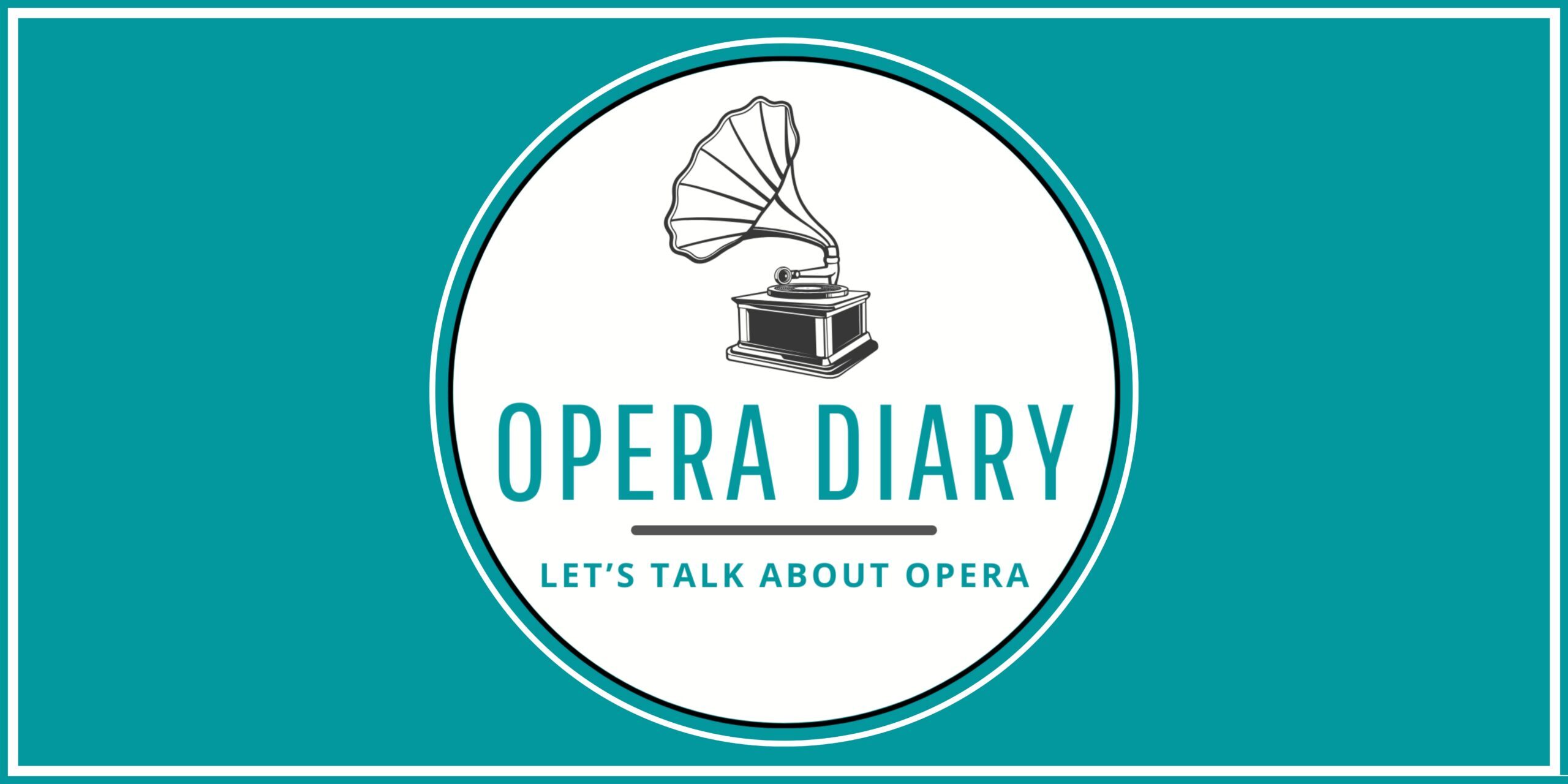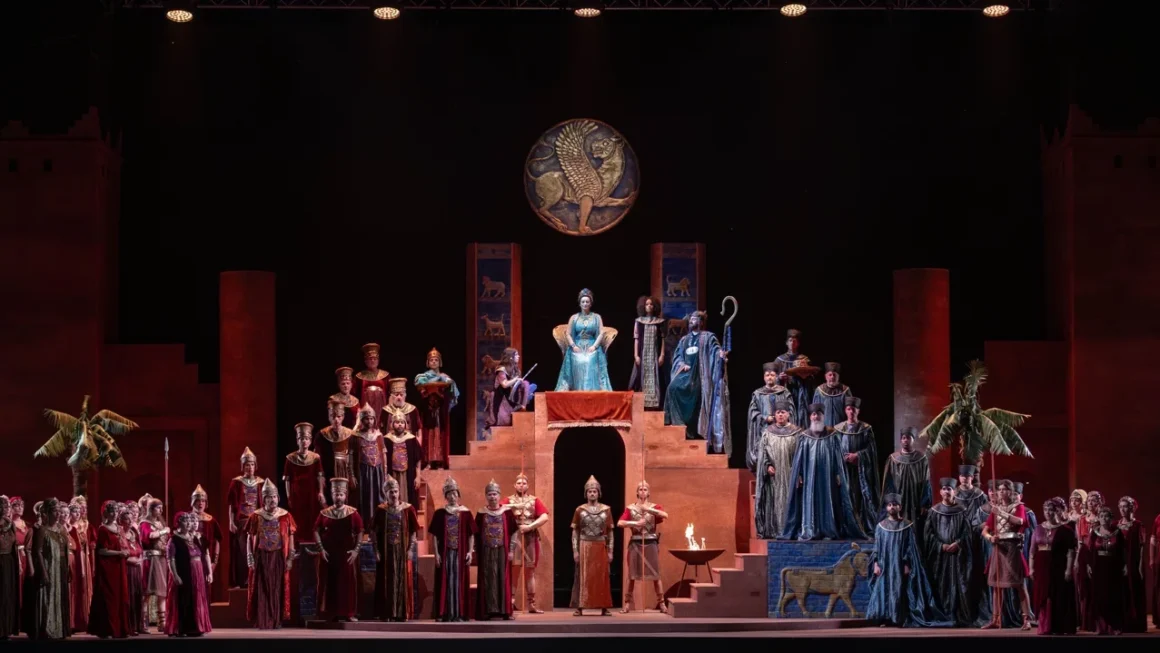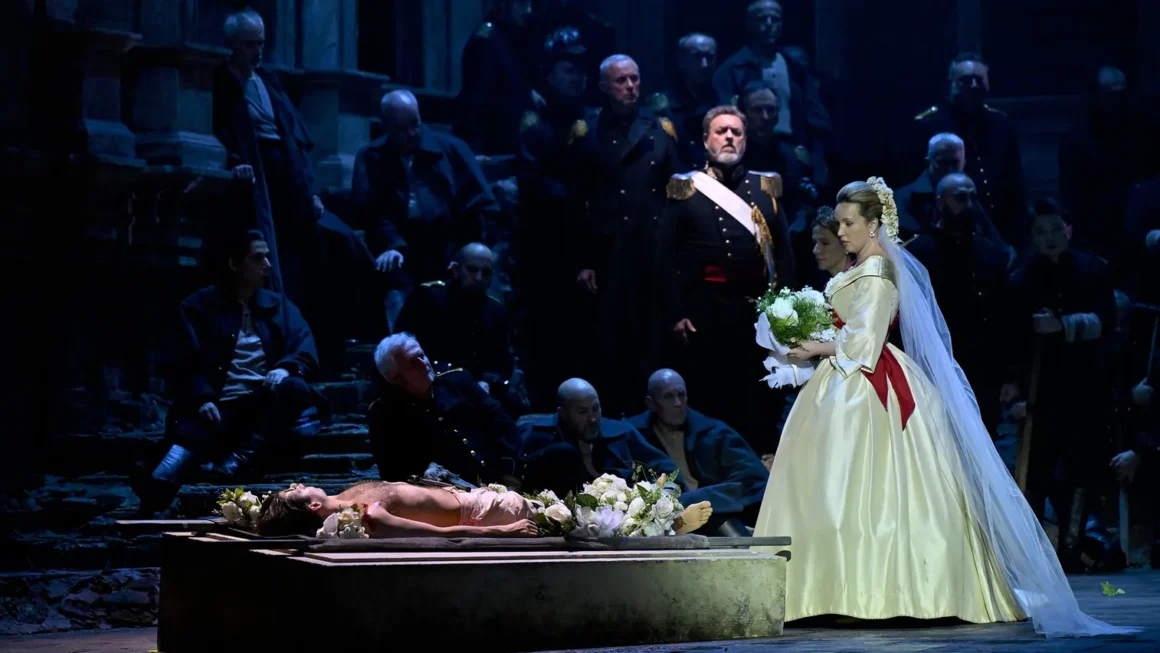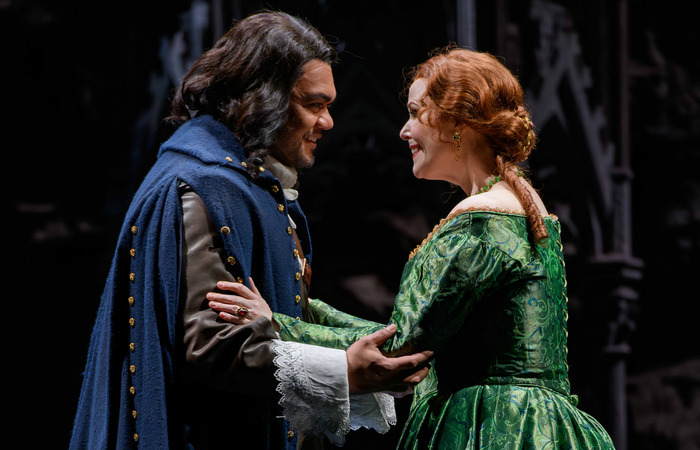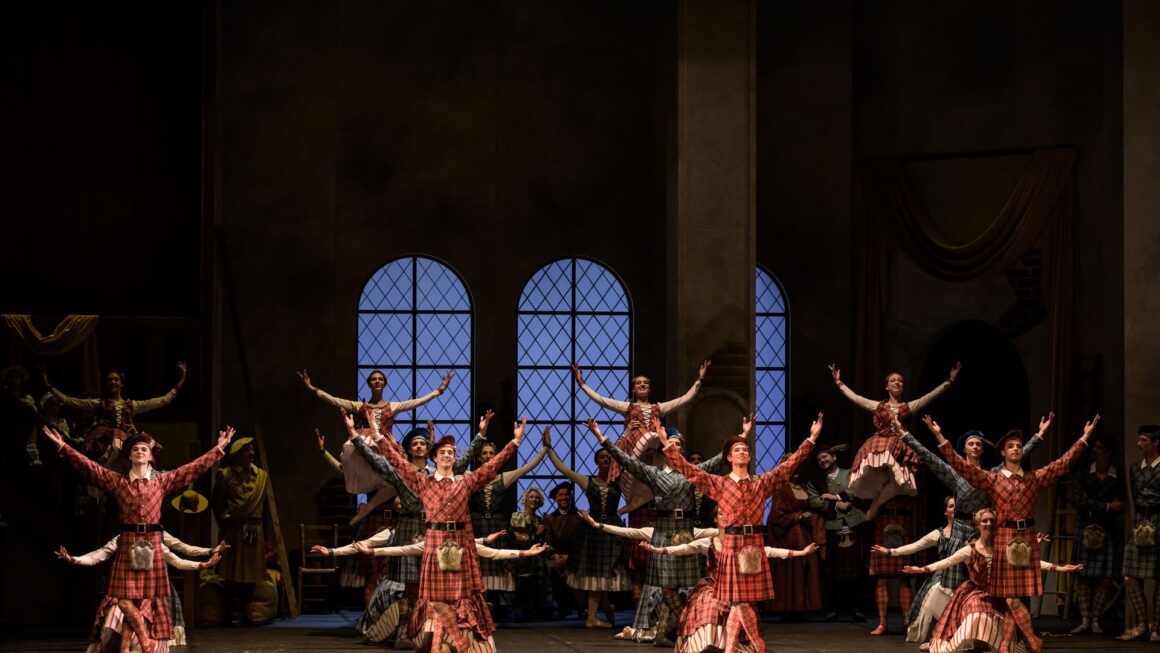Why on earth hadn’t I been here before?
That’s the question that inevitably lingers after a summer opera evening in Sanxay—along with that unmistakable sense of well-being that comes only when every element seems to fall effortlessly into place. This was, in every sense, a night to remember.
From the outset, the warmth and flexibility of the festival team set the tone. And then there’s the setting itself: Gallo-Roman ruins that frame the performance space with a grandeur that somehow feels intimate. The real surprise comes as soon as the overture begins: the clarity and balance of the acoustics are remarkable, especially for an open-air performance where sonic compromise is so often the trade-off for atmosphere. Not here. From the very first notes, the voices blended seamlessly with the rich sound of the excellent orchestra, promising two hours of music-making at the highest level.
On the podium, Valerio Galli led with clarity and precision, ensuring perfect unity between stage and pit. Andrea Tocchio’s production—classical, unfussy, and perfectly scaled to the space and audience—allowed the musical values to take centre stage. Galli shaped the performance with a bel canto directness and spontaneity that suited the score, creating an ideal environment for the cast to shine.
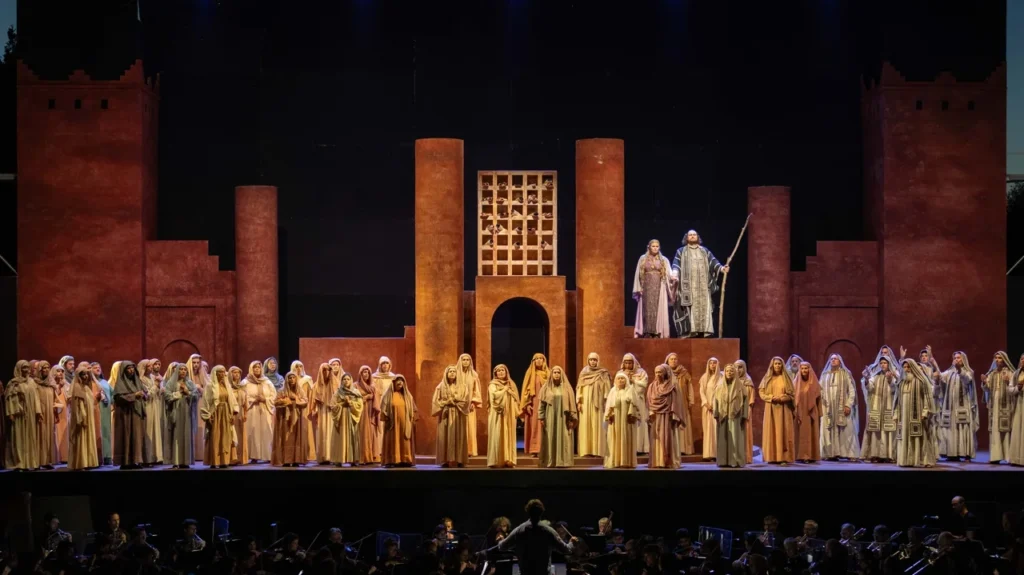
Ewa Vesin was a commanding Abigaile, finding the right balance between a woman swept up in the turmoil of her fate and one actively steering it. She unleashed her dramatic soprano with thrilling amplitude, especially in her Act III duet, one of the evening’s high points. Dmitry Ulyanov, in a role rich with solo opportunities, gave us a Zaccaria lighter in timbre than is often heard, yet with a warmth that lent the High Priest an almost paternal dignity. His Act II prayer, in dialogue with the cellos, was especially moving. Making her role debut, Marie-Andrée Bouchard-Lesieur offered a restrained, touching Fenena, guiding her character’s arc to a beautifully understated Oh dischiuso è il firmamento—a Verdian gem for mezzo-soprano too often burdened with excess.
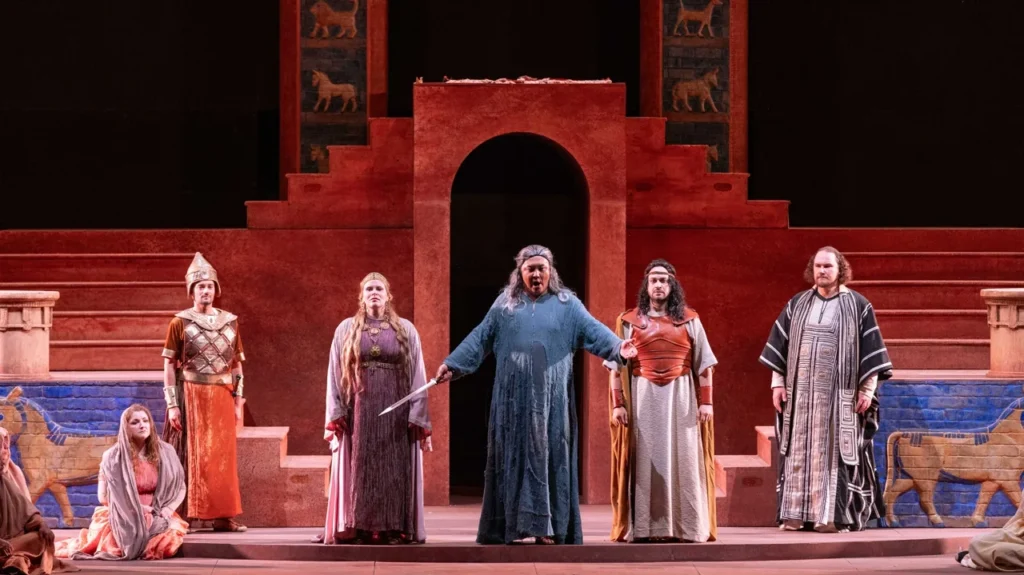
Klodjan Kacani’s Ismaele matched the principals in vocal presence, with a particularly fine showing in the Act I trio. Adrien Mathonat, Alfred Bironien, and Andreea Soare all contributed with precision and conviction. But the evening’s standout, the singer who drew the loudest and most sustained ovation, was Ariunbaatar Ganbaatar. He continues to put Mongolia firmly on the map of Italian opera, bringing ease, authority, and tonal opulence to the role. The flexibility of his voice—essential to the Verdian baritone armoury—enabled him to move with equal conviction from ruthless warlord to repentant father, from cornered tyrant to disoriented convert. It’s impossible to single out just one moment; he served this demanding role with total commitment from first note to last.
If I left wondering why it had taken me so long to discover Sanxay, I left with another certainty: I will be back next summer. Bravo, Sanxay—and above all, MERCI.
CAST
Abigaille : Ewa Vesin
Fenena : Marie-Andrée Bouchard-Lesieur
Anna : Andreea Soare
Nabucco : Ariunbaatar Ganbaatar
Zaccaria : Dmitry Ulyanov
Ismaele : Klodjan Kaçani
Le Grand Prêtre de Baal : Adrien Mathonat
Abdallo : Alfred Bironien
